Julie Bishop delivers her most powerful speech yet, revealing the ‘pain’ felt in recent months
IN A powerful speech Julie Bishop revealed the frustration of being ignored and spoken over as the only woman on the frontbench.
JULIE Bishop has gotten used to frequently being the only woman in a room full of men.
After two decades of working in the law and recently notching up the same amount of time in politics, the former foreign minister has forged formidable careers in two major boys’ clubs.
Since stepping down from her prominent post two months ago in the wake of the leadership spill that toppled Malcolm Turnbull, Ms Bishop has spoken on several occasions about the challenges faced by women in politics.
But on Tuesday night, the West Australian MP delivered perhaps her most powerful speech yet — and opened up about her “painful” decision to depart the foreign affairs portfolio.
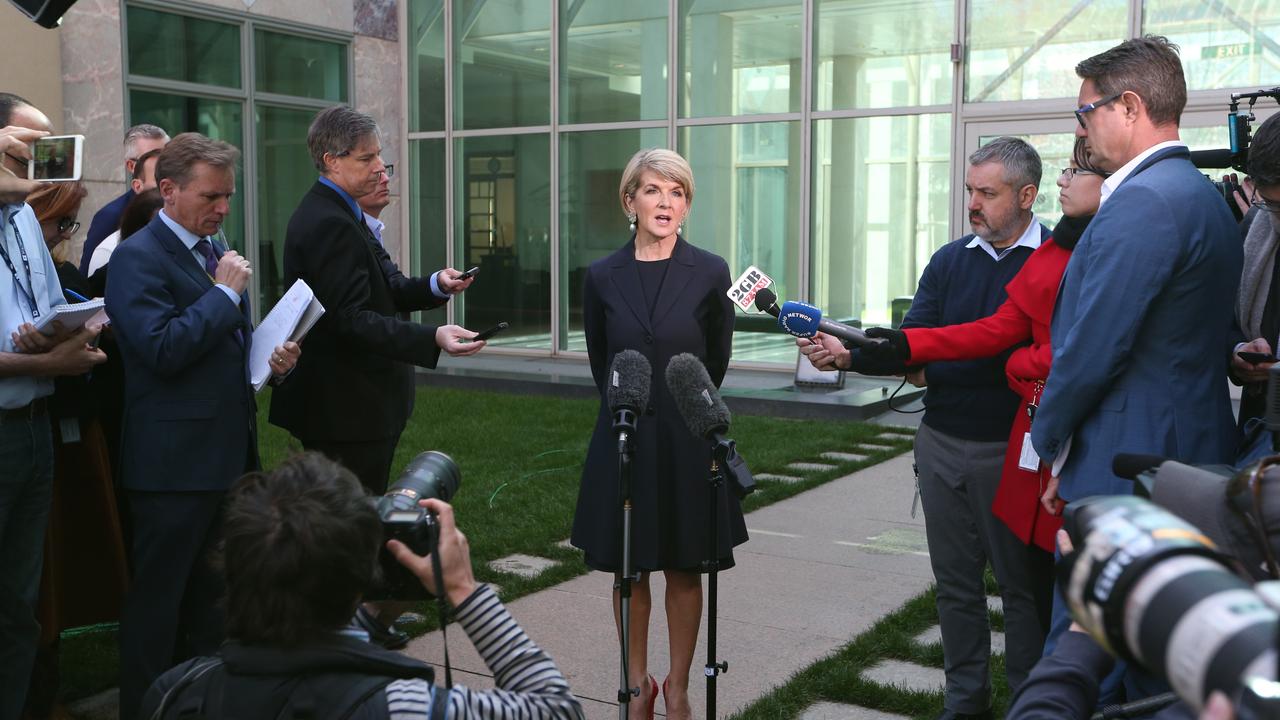
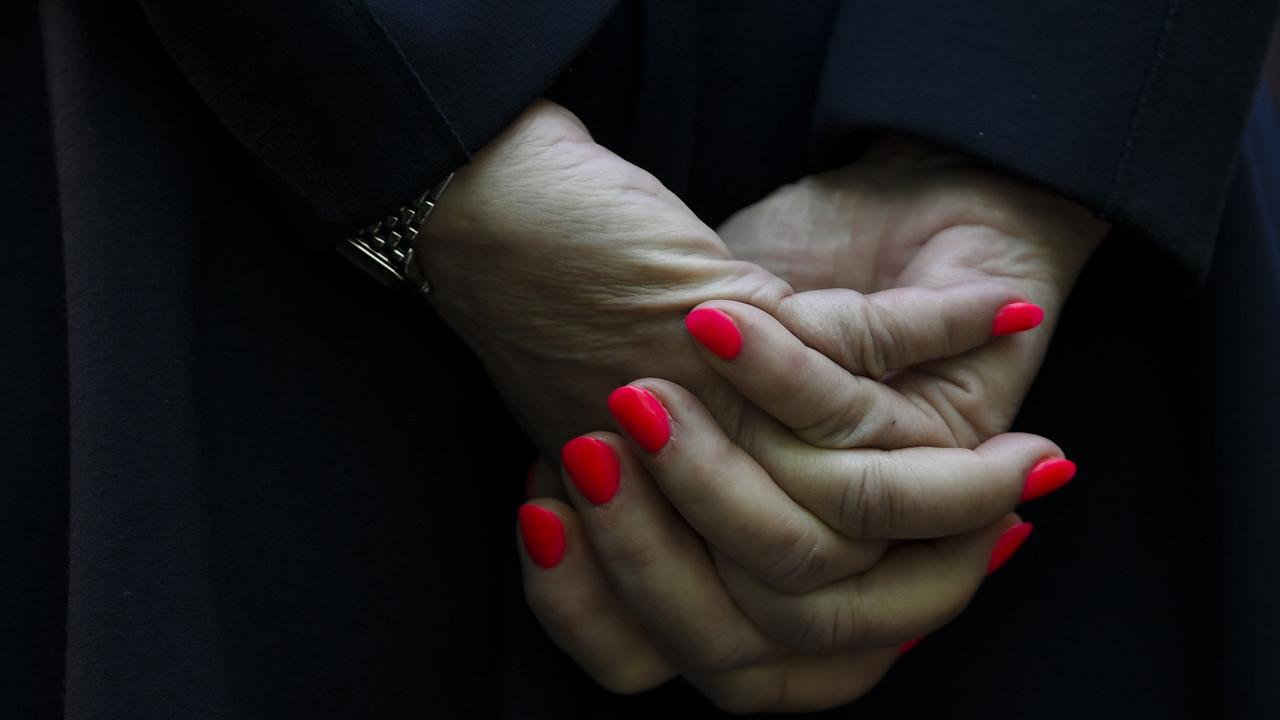
“Two months ago — not counting — I had to make what I think was one of the hardest decisions, to resign as deputy leader and then resign as foreign minister and leave the cabinet,” Ms Bishop told the Future Women dinner.
In a rousing keynote address about female leadership, Ms Bishop also spoke about her time as the lone woman on former Prime Minister Tony Abbott’s frontbench.
And she revealed the tendency for male colleagues to ignore her in the Cabinet room.
Summing up her observations of women in Canberra over 20 years, she concluded: “If you’re trying to be a man, it’s a waste of a woman.”
THE LONE WOMAN
When the Coalition swept to power in 2013, Ms Bishop was elected by the Liberal party room to be deputy leader.
With that, she automatically received a cabinet position — foreign affairs. There was “not one” other woman in Mr Abbott’s senior leadership time.
“And yes, it was lonely and there were times when I found it very frustrating. I was continually interrupted. Can you guys not hear us or something?” she said.
“I found that I would come up with idea, a proposal or an issue, and they would move on to the next person, and about three down someone would say exactly what I said, exactly what I said, and the guys would go ‘genius, let’s do that’.”
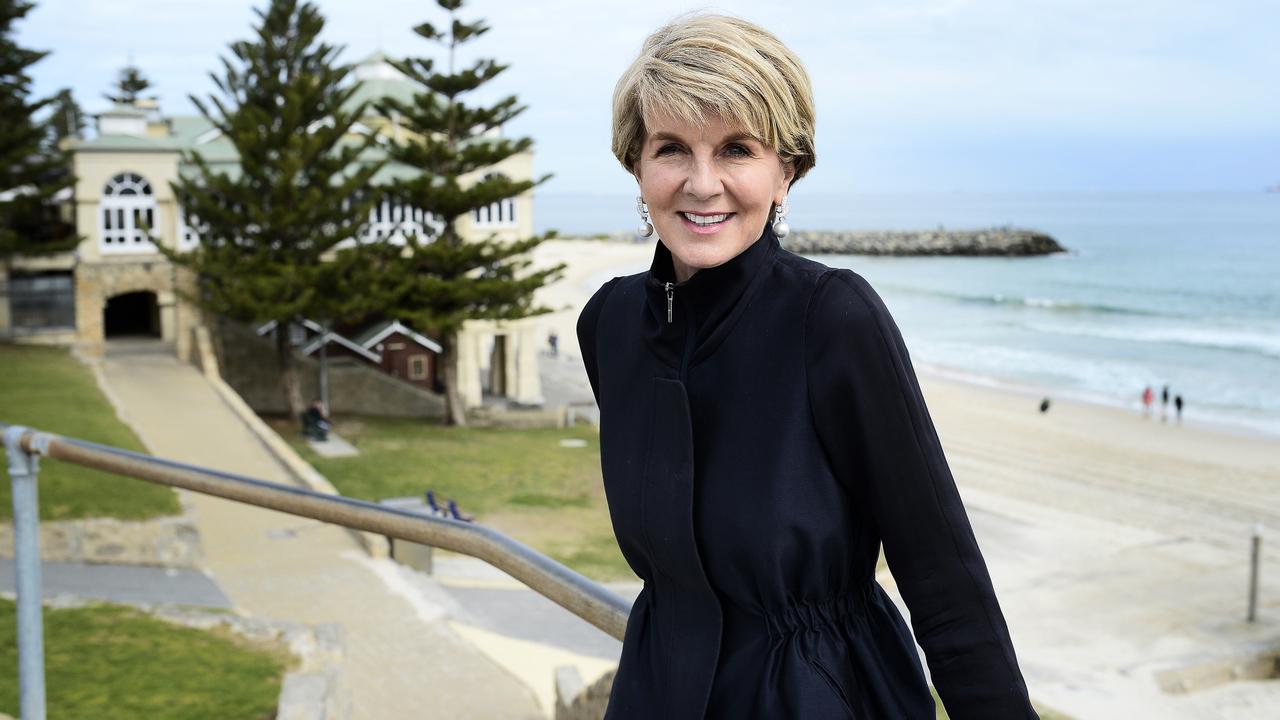
As more women were appointed to Cabinet over the years, Ms Bishop said they formed an unofficial and almost unspoken pact to support each other.
When one of them was dismissed, the other would step in and back her, she revealed.
“We would say, ‘don’t interrupt, she’s speaking’, or, ‘why have you just said that, (she) said that five minutes ago’. It was reminding them that women’s voices deserve to be heard.”
It was one of a number of anecdotes Ms Bishop shared about her time in the corridors of power in Canberra.
At several points, she was met with cheers by those in the crowd — a cohort of powerful women spanning business and community leadership, and including outgoing Liberal MP Julia Banks, who quit over alleged bullying during the leadership challenge.
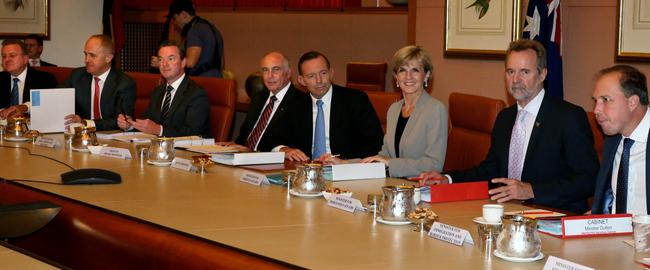
In the final term of John Howard’s government, Ms Bishop was appointed the minister for aged care.
On her first day, she received a phone call from “a senior male member of the PM’s staff” with some instructions on how she should approach the role.
“He said, ‘OK Julie, out with the power suits, no more corporate lawyer image, you’re now the Minister for Aged Care, I want to see cardigans and frocks’,” Ms Bishop recalled.
“I obliged. And then after a while, I thought, this isn’t me. Why am I dressing to please somebody else? I love fashion, wear what you want, be who you are.”
ON THE WORLD STAGE
During her 110-odd international trips as foreign minister, Ms Bishop said she made a point of meeting women in various leadership roles in each host country.
And she formed a club with other female foreign ministers from around the world.
“Over time, we started meeting formally. We would often comment about the contrast between meetings when we got together and the more usual meetings where we would be perhaps the only or one of two women in a room.”
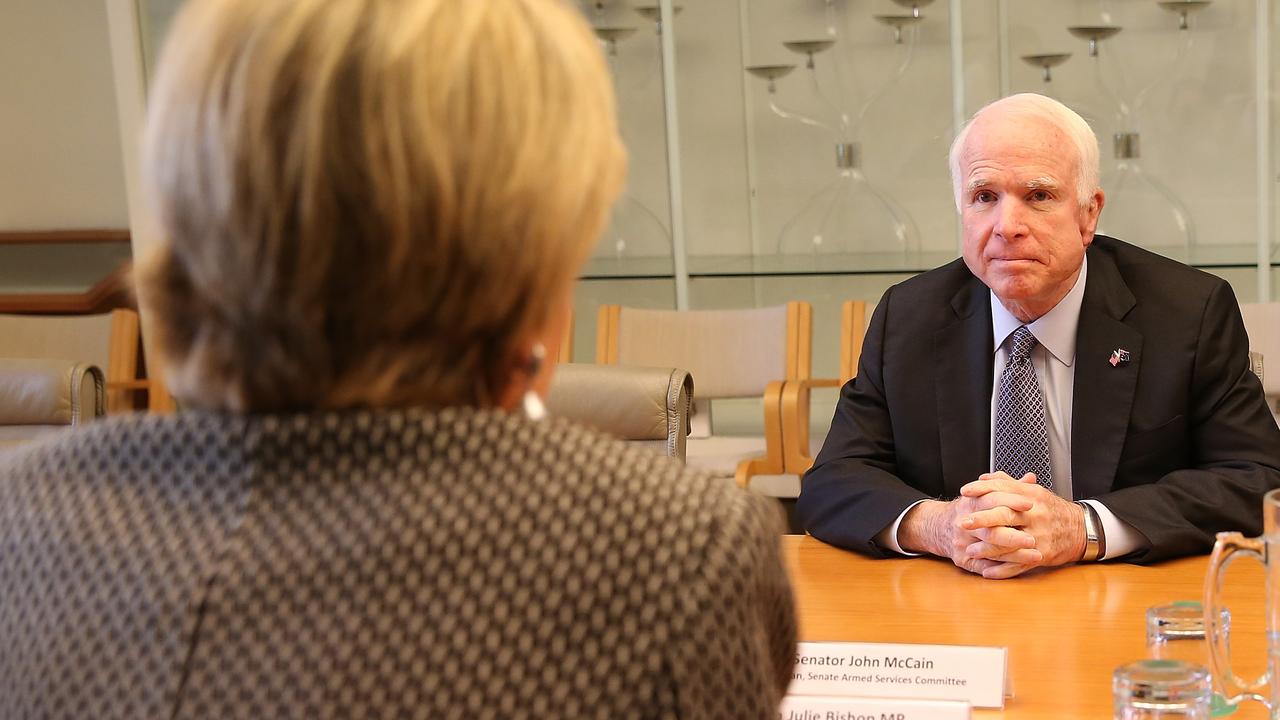
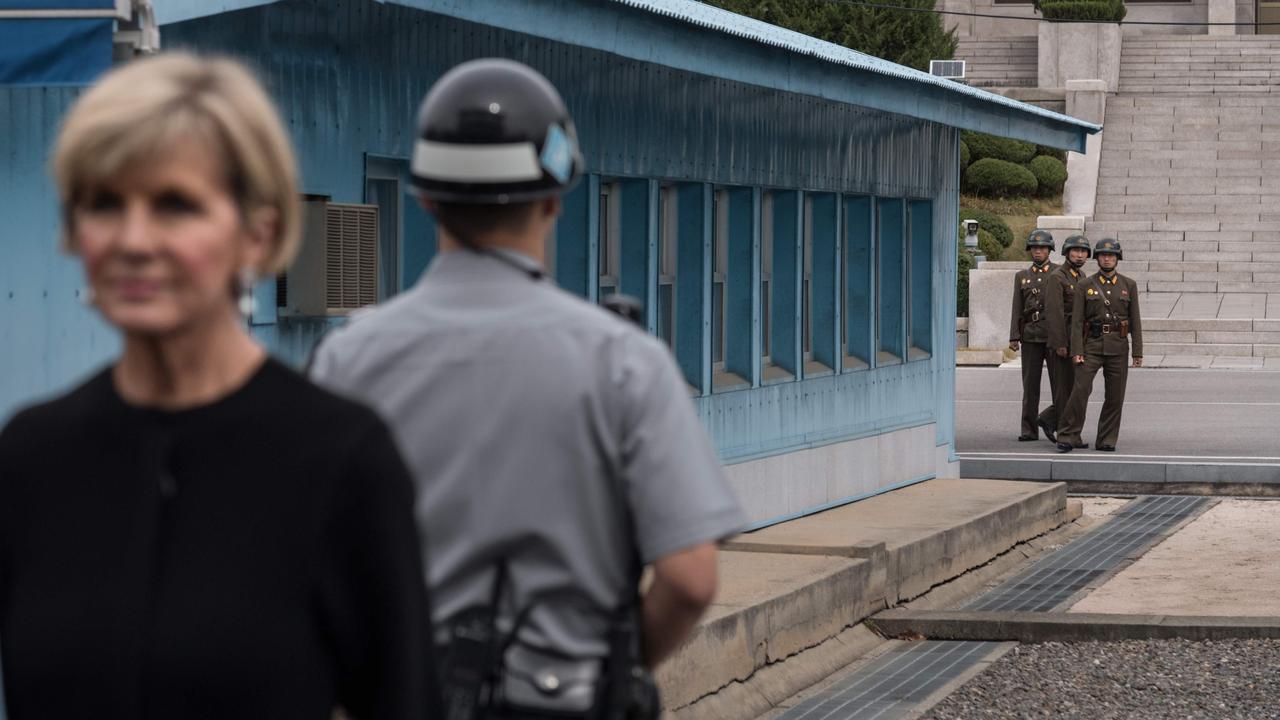
She recounted a meeting of the Counter ISIS Group, comprising 26 nations who were represented by their foreign ministers, which was chaired by then-US Secretary of State John Kerry.
“I was the only female, along with Federica Mogherini, who is the high representative of the European Union, and the rest were male,” Ms Bishop recalled.
“The discussion was brutal, aggressive, people shouting over each other and interrupting. At one point, Federica turned on her microphone and said ‘why don’t you boys just go outside and fight it out?’
“That night, I went to a meeting of the female foreign ministers … there were about 25 of us. We discussed the same topic, the same facts, and there could not have been a greater contrast in tone, style, outcomes, narrative and the way we saw the world.”
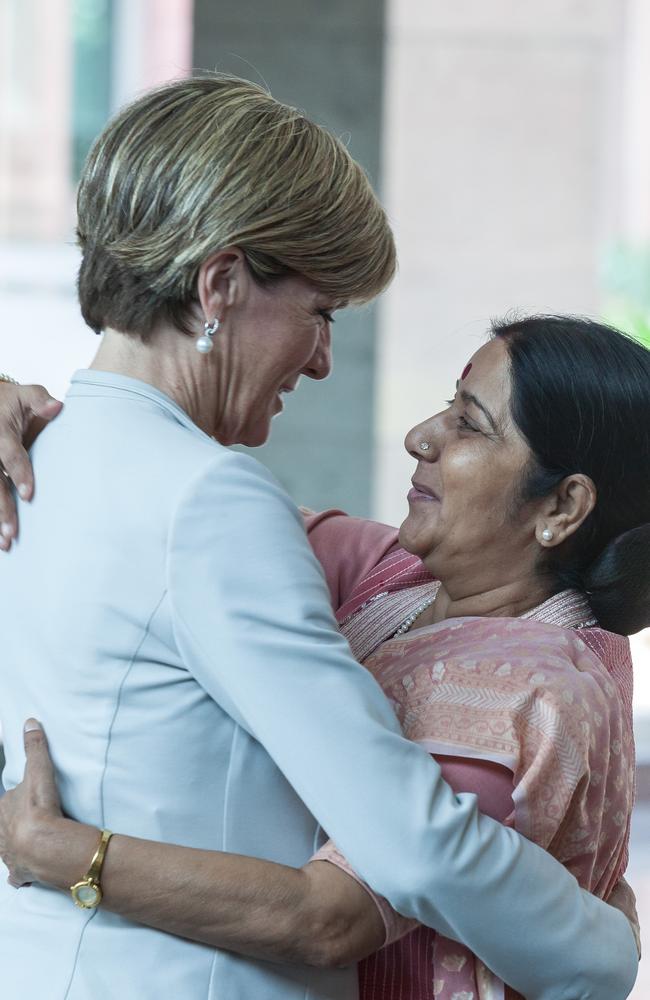
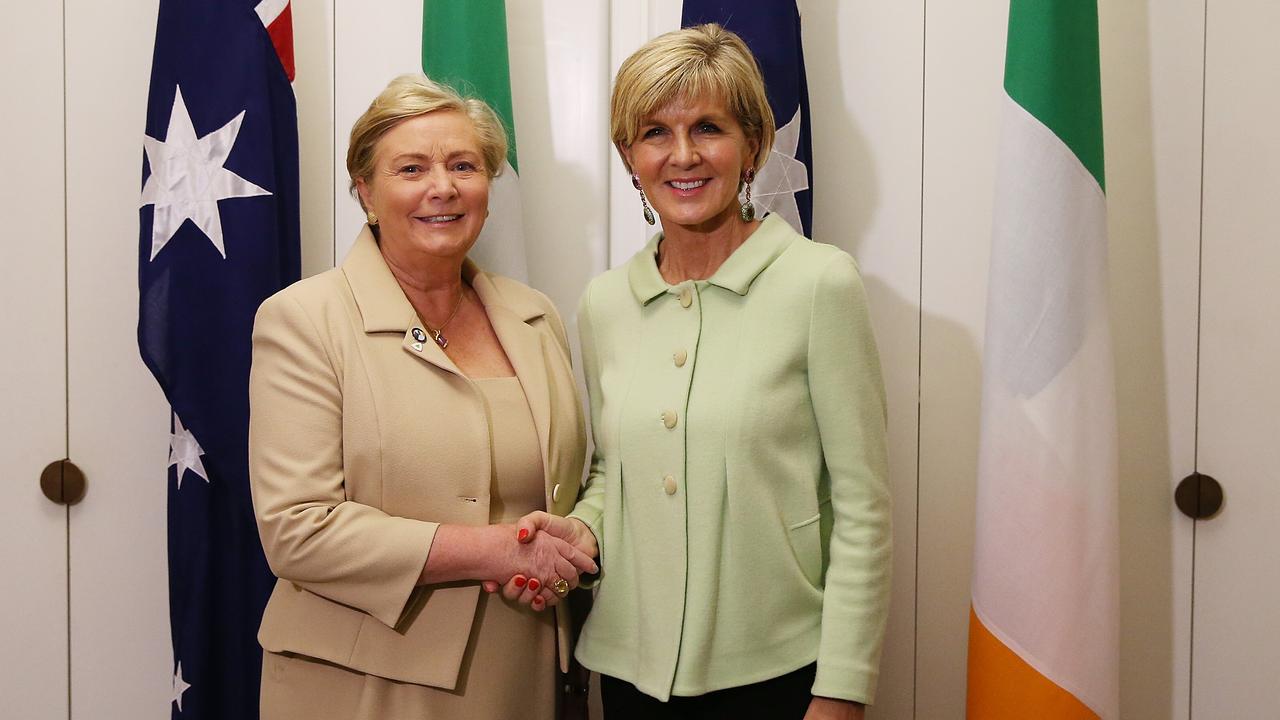
Ms Bishop singled out three women who served as US Secretary of State for being sources of support during her tenure.
“Madeleine Albright, Condoleezza Rice and Hillary Clinton. These were three women who gave me ideas and advice on the challenges they faced in an increasingly challenging world, and what they were trying to do to overcome them.”
They were women who some might “describe as woke”, Ms Bishop said, the millennial slang word for being enlightened and aware.
While her praise of Ms Clinton might come as a surprise to some, given their differences in political ideology, Ms Bishop said it was important for women not to destroy each other.
“Always back other women. They are not your enemies. They might be your competitors but they are not your enemies.”
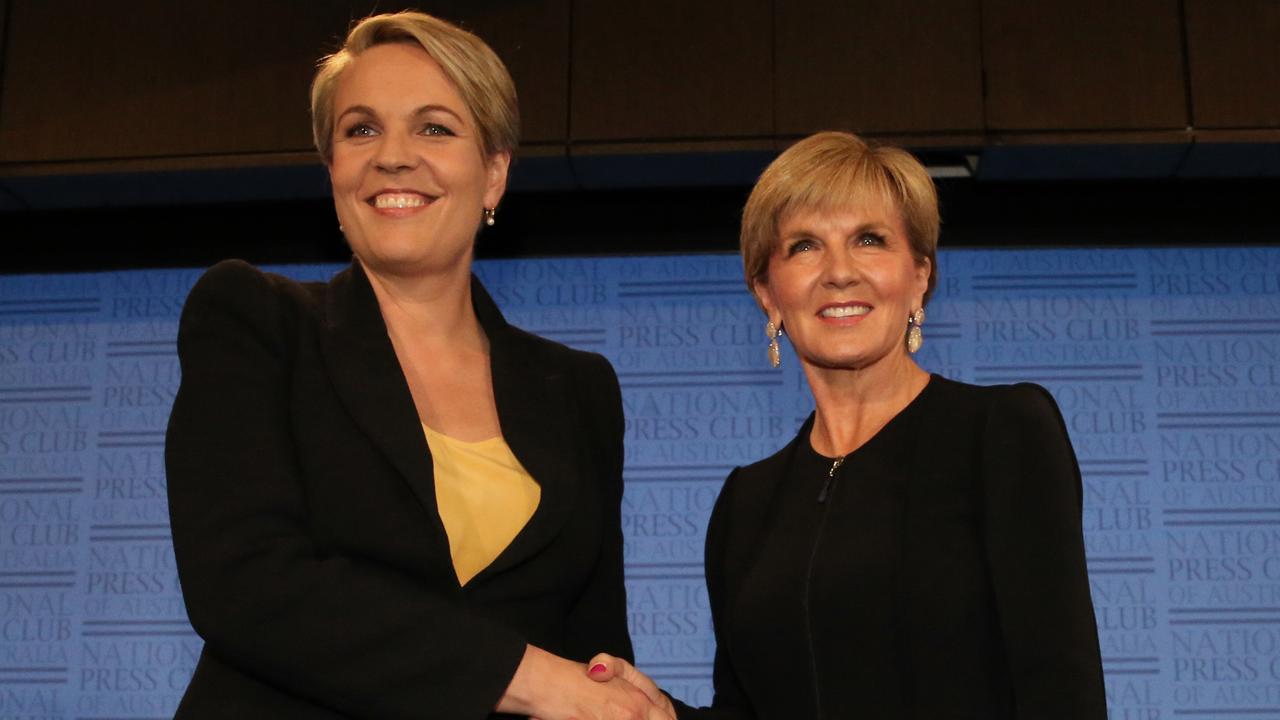
GENDER AND LEADERSHIP
Reflecting on her experiences sitting across tables from some of the most powerful men and women in the world, Ms Bishop said she had noticed differences in leadership styles.
She is now convinced by research that shows women tend to build teams, emotionally engage with individuals, and be empathetic and sympathetic to the needs of people.
“Men are more likely to be driven empirically to set team goals, they’re less likely to focus on the individual and it’s much more punitive and less sensitive. They set goals and judge the team and call them to account at every step,” Ms Bishop said.
“The research concludes that women’s leadership style is transformative, men’s style is transactional.
“Of course, there are strengths and weaknesses in both. But it leads me to conclude: if you’re trying to be a man, it’s a waste of a woman.”
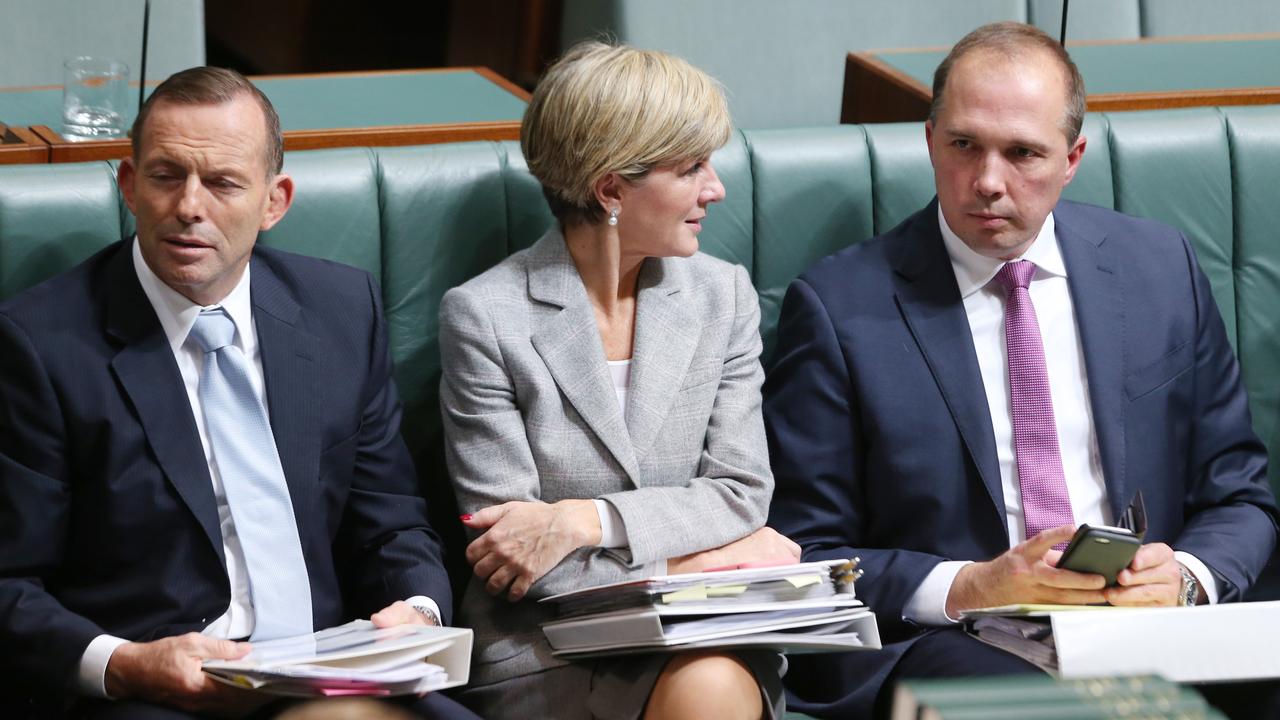
After stepping down as foreign minister, Ms Bishop spoke at an Australian Women’s Weekly lunch about the sometimes toxic nature of politics.
She spoke of being horrified at the things she had witnessed, particularly how some female politicians are treated.
And in an interview with 60 Minutes, Ms Bishop said things needed to change.
Despite her experiences, she insisted her remarks were not a sign that she was “walking away” from a sense of optimism for women in power.
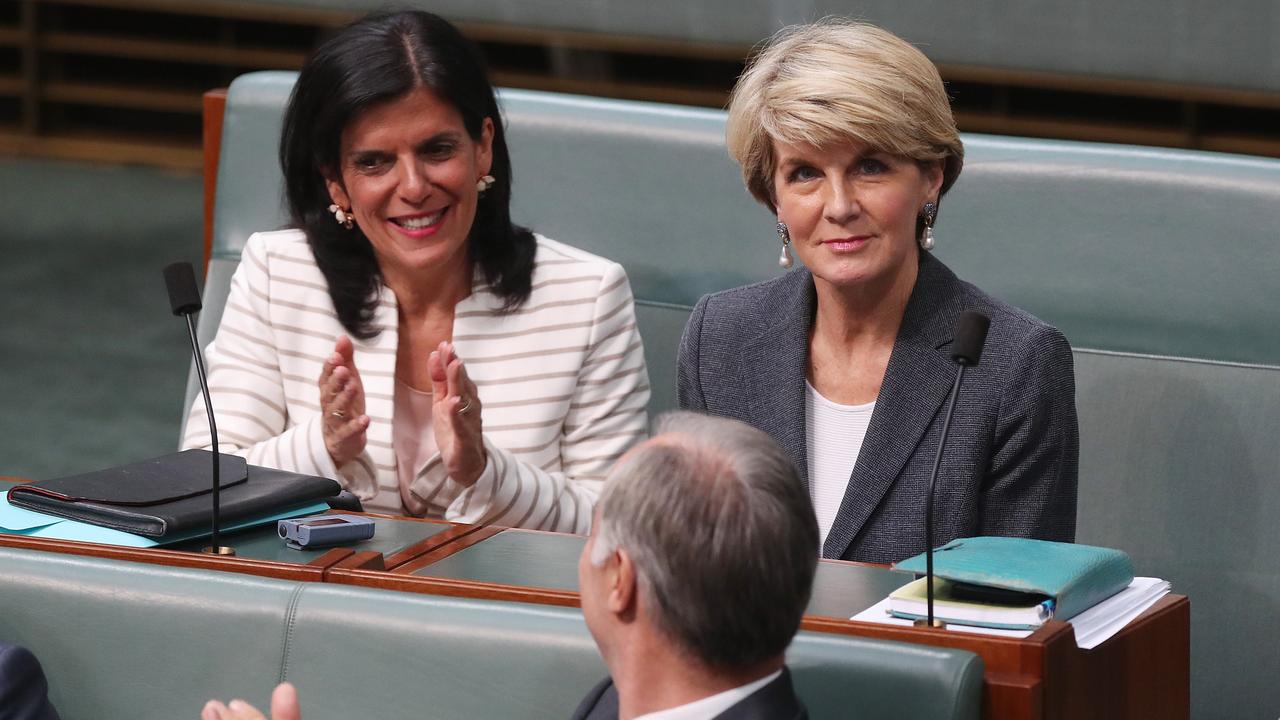
Instead, Ms Bishop said she hoped to encourage women “to aspire, to inspire, to success, to be fulfilled and the be empowered”.
“No nation will reach its potential unless it fully engages with and harnesses the skills and talents and energy and ideas of the 50 per cent of its population that is female,” she said.
“And in the case of Australia, that’s 51 per cent.”
HINTS ABOUT HER FUTURE
There has been much speculation about what Ms Bishop’s next moves might be.
She has indicated an intention to recontest her seat of Curtin at the next election, but after that, there has only been speculation.
Some pundits in Canberra say that should Scott Morrison’s government lose the election, Ms Bishop is a contender to be Liberal Opposition Leader.
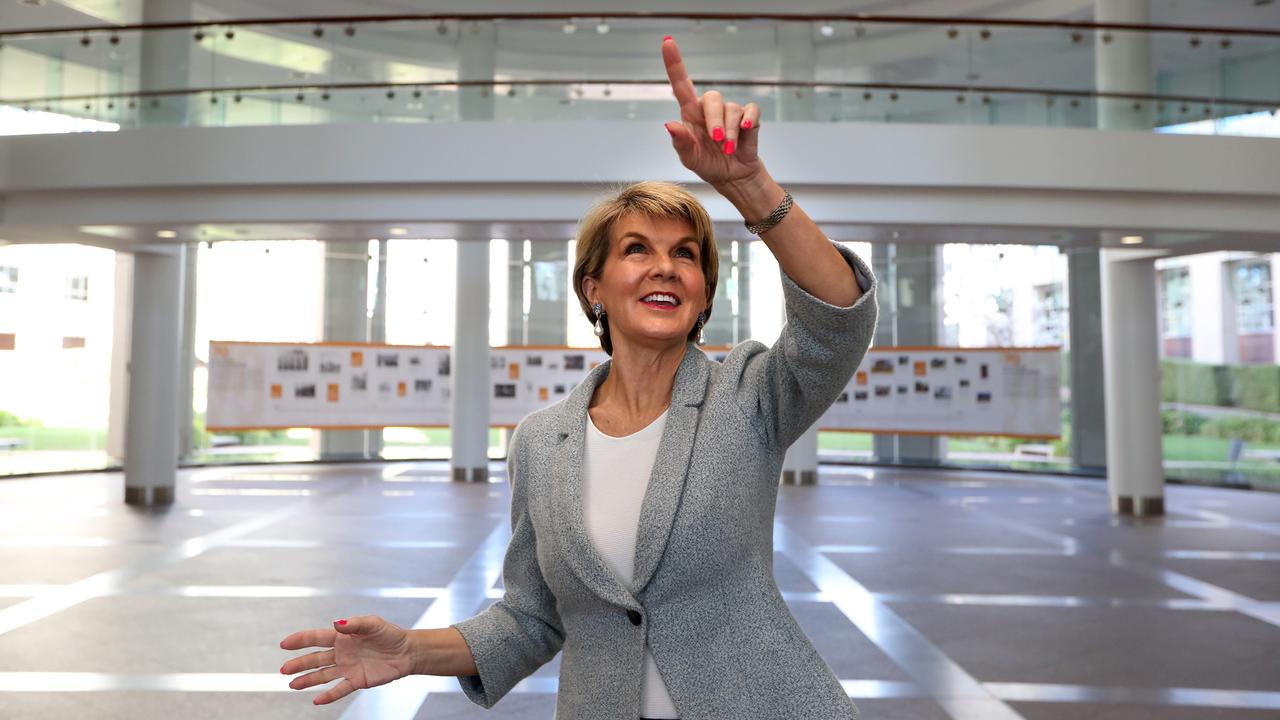
As she was introduced on Tuesday night, it was remarked that many in the room would’ve liked to have seen Ms Bishop as the current PM.
The suggestion was met with a round of applause.
While she did not touch on her plans in the midterm, she left the audience of female leaders with some advice, gleaned from her experiences.
“Never let anyone define who you are and what you can achieve,” she said.
“You set your own standards, you set your own benchmark and you strive to meet it. Ignore those whose standards they wouldn’t or couldn’t meet themselves. Be authentic, be yourself.”



